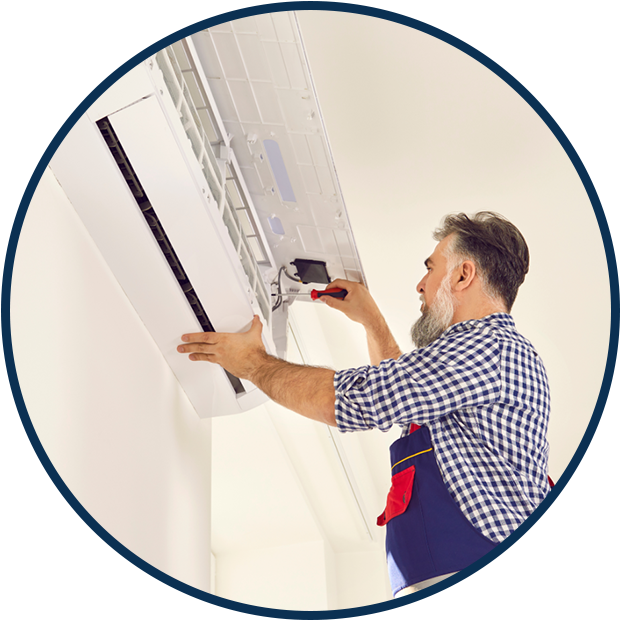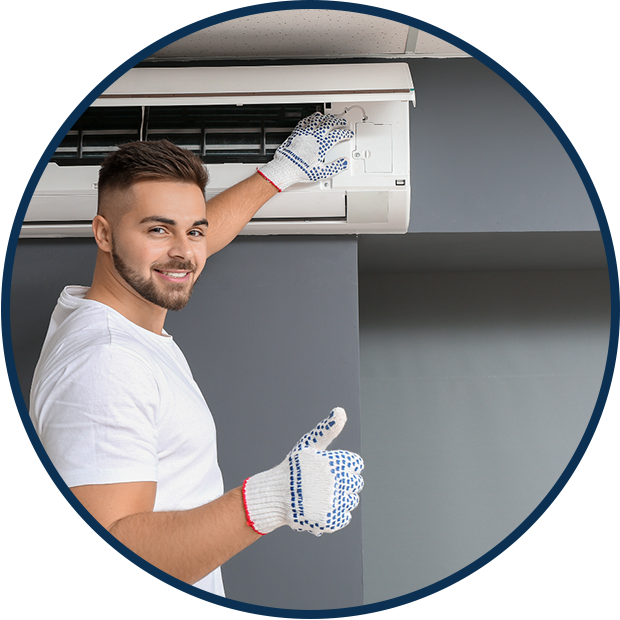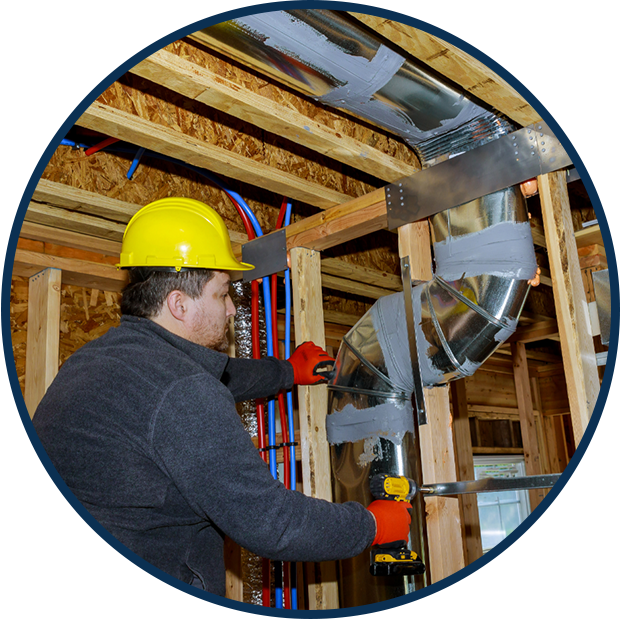Heating
- Home
- Heating
Melbourne Heating Installation

There are number of options to consider when determining how best to heat your residence during the cold Melbourne winter. Electric or Gas are the most common solutions, but there are many possibilities available to you, including Ducted, Reverse-cycle and Hydronic. DC Inverter Technology has made efficient and cost effective heating readily available and the only limitations are your initial budget. Efficient Air only uses the best brands and all our work is guaranteed. We offer ongoing advice and support as part of our professional service.

What to Consider Before Installing a Heating System in Melbourne
Efficiency
The efficiency of a heating system is important since it impacts both its energy consumption and environmental footprint. When comparing central heating systems with individual units, central heating systems tend to be more efficient due to their ability to distribute heat evenly across a property.
Gas heaters and reverse cycle air conditioners are among the most energy-efficient options available with fewer greenhouse gas emissions than conventional electric heaters. This makes them a more sustainable and eco-friendly choice for heating your home or workplace.
Expenses
When selecting a heating system, meeting expenses is a critical factor to consider. Gas and electric heaters generally have lower installation costs, which can make them an attractive option initially. However, the running costs of electric heaters can accumulate significantly over time, making them more expensive in the long run.
On the other hand, reverse cycle air conditioning systems have the highest upfront costs but offer dual functionality for both heating and cooling. These systems are more energy-efficient and cost-effective over time, providing long-term savings on electricity bills while ensuring year-round comfort.
Weather
Melbourne’s unpredictable and extreme weather conditions play a crucial role in determining the best heating system for your needs. Gas heating systems are considered the best for heating in Melbourne and are highly effective in colder winters, since they can heat spaces quickly and maintain warmth for extended periods. They are the preferred choice for ensuring maximum comfort during freezing temperatures.
For moderate climates or fluctuating temperatures, electric and reverse cycle heating systems offer greater flexibility. These systems can adapt to varying weather conditions and provide efficient temperature control without excessive energy consumption. If you’re on the lookout for heating services in Melbourne feel free to reach out to us for your installation needs.

Split System Air Conditioning

A split system supplies heated air to either a single or multiple rooms to the building. Split-systems offer a variety of indoor unit styles including wall-mounted, ceiling-mounted and ceiling recessed units. Top quality brands such as Daikin use DC Inverter Technology, using less power to create more efficient heating and reduced running costs. Split systems can be at their most basic level can be as simple as a head unit inside and a condenser outside the room. However, multiple head units in different rooms may make use of a single external condenser, thus eliminating the need for multiple external units.
Ducted Air Conditioning



Gas Ducted Heating

Gas ducted heating is an efficient system that uses LPG (Liquid Petroleum gas) or Natural Gas. Based on a central heat exchange unit/furnace, warm air is directed throughout your residence through ducts to outlets in the floor or ceiling (or even sometimes the walls).
Gas ducted systems tend to be rated according to energy efficiency using the well-known Star System (3 to 6 stars). Braemar (one of our preferred brands) was the first company to achieve the 6 Star Rating and represents the most cost efficient Gas Ducted heating solution as a consequence. Such a system affords top quality hardware and reduced running costs for years to come.
Hydronic Heating

Hydronic systems work by directing the flow of heated water from a central boiler throughout the building by installing a radiant heater (or heaters) in each room. The heated water is recirculated back to the central gas boiler and as a result requires less ongoing energy to maintain the temperature.
The central unit can be set to a specific temperature and each heat emitter (radiator) is in turn individually adjustable. The central boiler is generally independent of the main hot water system (though it can be incorporated if needed) and it’s location is based on the individual requirements of the residence.
Very popular in Europe, the Hydronic option is silent and unlike forced air heating systems, offers an ideal solution to those susceptible to problems associated with the latter (especially those with asthma or similar respiratory considerations). Hydronic heating is an allergen free, elegant solution to your heating needs.


Reverse cycle

Reverse cycle air conditioning is a system that exchanges heat, optionally removing warm air from a given area and returning cool air through heat exchange, or when the reverse cycle function is engaged, warm air is circulated instead of cool air.
Reverse cycle air conditioning uses an electric heat pump and may be more or less efficient, depending on your needs. However, the heat pump is significantly more energy efficient than electric resistance heating (which is used in the well known but energy-hungry electric radiator).
The latter is useful in providing quick heat to a small area but is extremely expensive to run and not suitable for more than a single room.



